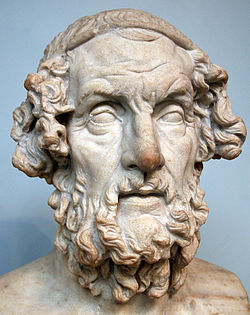 Perhaps it’s because of our fond memories of childhood school days, when we learned about Homer’s Iliad and the beloved heroes and legends of the Trojan War, that, in the present days of economic turmoil, when you say Greece you say Cassandra, the prophetess of doom. It’s almost inevitable, or that’s what seems to be the case. However, if you are an incurable optimist, just keep away from stuff like this…
Perhaps it’s because of our fond memories of childhood school days, when we learned about Homer’s Iliad and the beloved heroes and legends of the Trojan War, that, in the present days of economic turmoil, when you say Greece you say Cassandra, the prophetess of doom. It’s almost inevitable, or that’s what seems to be the case. However, if you are an incurable optimist, just keep away from stuff like this…
May 4, 2010
But the Greek bailout won’t work, says Cassandra
 Perhaps it’s because of our fond memories of childhood school days, when we learned about Homer’s Iliad and the beloved heroes and legends of the Trojan War, that, in the present days of economic turmoil, when you say Greece you say Cassandra, the prophetess of doom. It’s almost inevitable, or that’s what seems to be the case. However, if you are an incurable optimist, just keep away from stuff like this…
Perhaps it’s because of our fond memories of childhood school days, when we learned about Homer’s Iliad and the beloved heroes and legends of the Trojan War, that, in the present days of economic turmoil, when you say Greece you say Cassandra, the prophetess of doom. It’s almost inevitable, or that’s what seems to be the case. However, if you are an incurable optimist, just keep away from stuff like this…
'The Sun Behind the Clouds'
“The Sun Behind the Clouds: Tibet’s Struggle for Freedom,” the documentary film by Ritu Sarin and Tenzing Sonam (check out the trailer below), has been greeted by some critics as “a potent update” on Tibetans‘ 50-year struggle for justice and recognition, and “an essential viewing” for anyone who cares about the fate of Tibet and the legacy of the Dalai Lama, while others (this one, for instance) have pointed out that the filmmakers lurch awkwardly between reverence for the Dalai Lama and hints that he has become, politically, irrelevant or an obstacle. As a matter of fact, as noted by another reviewer, the film incorporates several approaches, and perhaps not all are really worth your time…
Be it as it may, I stand with the Dalai Lama and always will. The only thing I know is that, to quote one of my favorite authors ever, “The strongest of all warriors are these two—Time and Patience” (Leo Nikolaevich Tolstoi). Long life to His Holiness!
For all its worthiness politically, “The Sun Behind the Clouds’’ is a lackluster film. That changes whenever the Dalai Lama is on screen. We see him at his residence in the northern Indian city of Dharamsala, as well as making public appearances in the United States and Western Europe. To watch his meet-and-greet with Prince Charles is truly to see worlds colliding — those worlds being humanity at its most impressive and Madame Tussauds at its most animated (relatively speaking). The Dalai Lama also gives interviews to the filmmakers. He’s the most prominent of several talking-head subjects, nearly all of them Tibetan activists.
The closest thing to debate in the movie is over the Dalai Lama’s “middle way’’ policy, which seeks Tibetan autonomy under Chinese rule rather than outright independence. Several activists criticize the Dalai Lama for what they see as self-defeating moderation. It’s hard to imagine what alternative the Dalai Lama has. “The only thing we know is that empires rise and fall,’’ says Lhadon Tethong, former executive director of Students for a Free Tibet. That’s certainly true. But as another Tibetan activist notes, the situation of his people recalls that of Native Americans and Native Australians in the 19th century. More Chinese than Tibetans now live in Lhasa. Cultures fall, too, especially when they’re shoved.
Be it as it may, I stand with the Dalai Lama and always will. The only thing I know is that, to quote one of my favorite authors ever, “The strongest of all warriors are these two—Time and Patience” (Leo Nikolaevich Tolstoi). Long life to His Holiness!
Subscribe to:
Comments (Atom)
